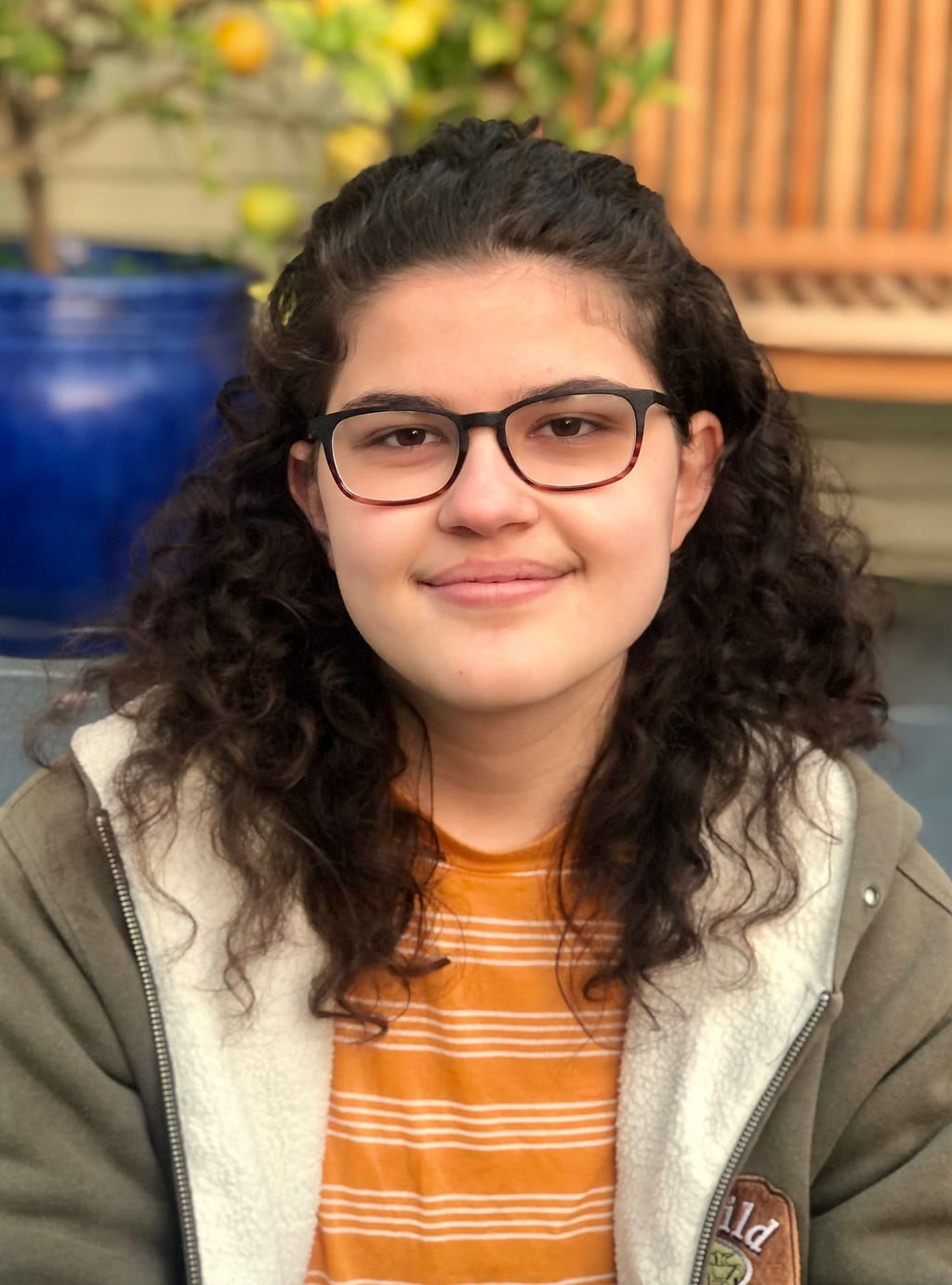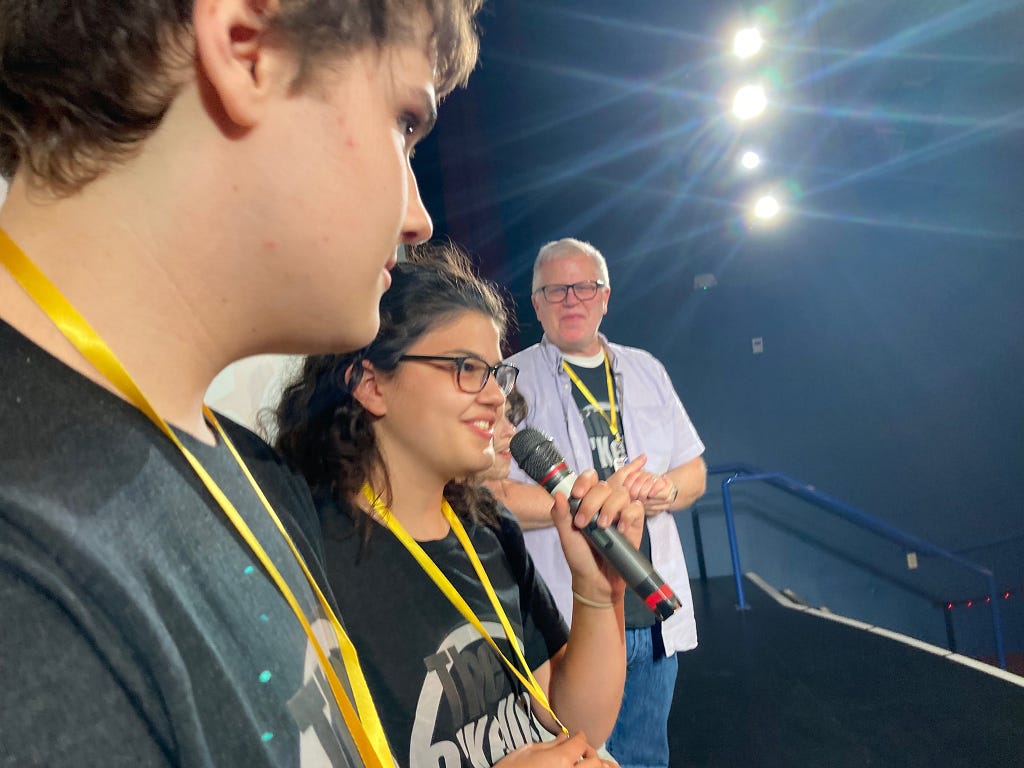Filmmakers Making A Social Impact: Why & How Filmmaker Rachel O’Kelley Is Helping To Change Our World

You only live one life, and so, you want to start by being your best self. By being your best and being a positive influence on those around you, you’ll make the world a better place. Find your passion and share it with the world!
As a part of our series about “Filmmakers Making A Social Impact” I had the pleasure of interviewing Rachel O’Kelley.
Rachel O’Kelley is a producer and 2e advocate. She has produced projects such as award-winning feature documentary O’Kelley Legends: 2e Behind the scenes and award-winning short-film It’s Another Season both currently screening in film festivals. Rachel has interned in the past with Autism Career Pathways and presented on behalf of The O’Kelley Lab as well as is the director of The O’Kelley Lab’s outreach, design, and social media. When not producing or working behind the scenes on 2e advocacy projects Rachel is a high schooler studying art at an arts high school in Los Angeles.
Thank you so much for doing this interview with us! Before we dive in, our readers would love to get to know you a bit. Can you share your “backstory” that brought you to this career?
Growing up in Los Angeles with parents that are in the film business, I’ve been visiting sets and getting to eat snacks off the craft service table for as far back as I can remember. It wasn’t until I was 12 that I got my first producing credit with O’Kelley Legends, a documentary that follows my brother, Jordan O’Kelley, as he adapts his book of short stories into a monologue showcase as a fundraiser for the nonprofit SENG. My mom was directing the project and turned around and said she needed a producer and I just happened to be standing there — so I got the job! And, turns out, I was good at it and I liked doing it.
Can you share the funniest or most interesting story that occurred to you in the course of your filmmaking career?
After a hectic day of filming the audition process of the monologue show, my very exhausted dad realized he not only drove away from the location without my sister and I, but also drove away with my mom’s car keys in his back pocket. It didn’t seem funny at the time, but I can laugh about it now!
Who are some of the most interesting people you have interacted with? What was that like? Do you have any stories?
Actor/Director/Writer Daniel Roebuck (The Munster’s, The Fugitive, Lost) is one of the more interesting and fun people I have had the pleasure of working with. He’s not only multi-talented, but is a kind and wonderful mentor. Duane Whitaker (Pulp Fiction, Together and Alone, Dust Till Dawn 2) is another talented Actor/Director/Writer that I’ve had the chance to work with. I’ve since gotten to work on their projects as well. Casting Director Mark Tillman-Briggle (It, Highlander, MacGyver) is another amazing mentor from our documentary that I really cherish getting to spend time with and learning from. You can tell by watching the film what a funny and caring person he is.
Which people in history inspire you the most? Why?
One of the most inspiring people in history for me is Hayao Miyazaki the co-founder of Studio Ghibli. He’s a filmmaker that really inspired and empowered me at a young age. His films really reached me both now and as a kid with heavy topics and moving stories that I find myself coming back to and learning from time and again. They were particularly empowering for me as a girl as many of his films provided strong female role-models that I could look up to. I really hope to be as impactful as a filmmaker and advocate as he is.
Let’s now shift to the main focus of our interview, how are you using your success to bring goodness to the world? Can you share with us the meaningful or exciting social impact causes you are working on right now?
Currently I am going to film festivals as well as educational conferences with the documentary and sharing resources with neurodiverse individuals and their families. We’re very lucky to be partnering with the non-profit SENG (Supporting the Emotional Needs of the Gifted).
Many of us have ideas, dreams, and passions, but never manifest it. But you did. Was there an “Aha Moment” that made you decide that you were actually going to step up and take action for this cause? What was that final trigger?
The “Aha Moment” for me I think was my exposure to the strength-based education model when I was in middle school at Bridges Academy. Before that, I really didn’t know what my strengths were and felt like I was just in a class doing what my teachers told me to do, just trying to make it in a one-size-fits-all model as a twice-exceptional student. Once I realized what a difference a strength-based model could make, I wanted to be a part of that change in education.
Can you tell us a story about a particular individual who was impacted or helped by your cause?
Last March we were at the Borrego Springs Film Festival with our film. After the Q&A my family and I were approached by a very emotional dad that shared his family’s experiences with Autism and was so relieved to know that he wasn’t alone. My brother and I spoke with him and at the end of the conversation we gave him a group hug. That moment really helped me realize the difference this documentary can make and how just by telling our story we can help other families.

Are there three things that individuals, society or the government can do to support you in this effort?
Individuals can embrace their differences and celebrate their strengths. As a society we can educate ourselves on people that have differences and create better environments to support them. And the government can change the education model from a one-size-fits-all to a more individualized educational model.
What are your “5 things I wish someone told me when I first started” and why. Please share a story or example for each.
As a highschooler I might not have a lot of advice that comes with age, but I definitely wish I understood the importance of getting outside of your comfort zone sooner. I recently did a leadership training where I had to write and perform a 3-minute stand-up routine in-front of 350 people. Through this experience I realized that not only have I not pushed myself to do more but no one has ever expected me to go beyond my comfort zone. Sometimes, especially in high school, we fall into a more limited view of ourselves and the world. Like just getting good grades in school instead of going beyond the grade and reaching your potential. So my advice is get outside your comfort zone and dream big — don’t limit yourself, don’t settle for less because you think you can’t attain it.
I wish I knew that creativity and leadership comes in different shapes and sizes. When I’m working as a producer, my role is not to have the vision, but to support it. As a producer, I come in and make a project better, which is different than when I’m creating a project of my own. Understanding these different roles and finding your own strengths within a project or in life overall is very empowering.
I wish I would’ve gotten over being embarrassed sooner. Once I was able to find humor in things I was once embarrassed by I was able to be more comfortable with myself.
Another thing I wish I knew is that I didn’t have to be loud to be strong. I come off as a quiet and shy person but that doesn’t mean I can’t be heard or get my point across. I think it’s really important to find a means of communication that serves you best. For me, my strength in communication is not verbal but through writing. For example, I’m in charge of the graphics and outreach for The O’Kelley Lab.
If you could tell other young people one thing about why they should consider making a positive impact on our environment or society, like you, what would you tell them?
You only live one life, and so, you want to start by being your best self. By being your best and being a positive influence on those around you, you’ll make the world a better place. Find your passion and share it with the world!
We are very blessed that many other Social Impact Heroes read this column. Is there a person in the world, or in the US, whom you would like to collaborate with, and why? He or she might see this. 🙂
Hayao Miyazaki and Tony Robbins. Tony Robbins is in the Social Impact and Human Transformation business. He’s constantly educating himself and others and using his influence to make a positive change. I would love the opportunity to work with his foundation someday. Hayao Miyazaki has been an inspiration to me. I plan to continue to make a difference with the film projects I work on in the future, the way many filmmakers and creators, like Miyazaki, use their mediums to make a difference in the world.
Can you please give us your favorite “Life Lesson Quote”? Can you share how that was relevant to you in your life?
“This is your world. You’re the creator. Find freedom on this canvas. Believe, that you can do it, ‘Cuz you can do it. You can do it.” -Bob Ross
Like in producing my first film, I needed to believe that I could do it — I know I can. Since I discovered Bob Ross back in middle school his quotes have been great affirmations for me. I find him and his quotes to be very empowering and inspiring.
How can our readers follow you online?
Readers can find me and/or The O’Kelley Lab under @the_okelley lab on Instagram and Twitter or @theokelleylab on Facebook, or they can find our website at www.theokelleylab.com.
This was great, thank you so much for sharing your story and doing this with us. We wish you continued success!
Filmmakers Making A Social Impact: Why & How Filmmaker Rachel O’Kelley Is Helping To Change Our… was originally published in Authority Magazine on Medium, where people are continuing the conversation by highlighting and responding to this story.
